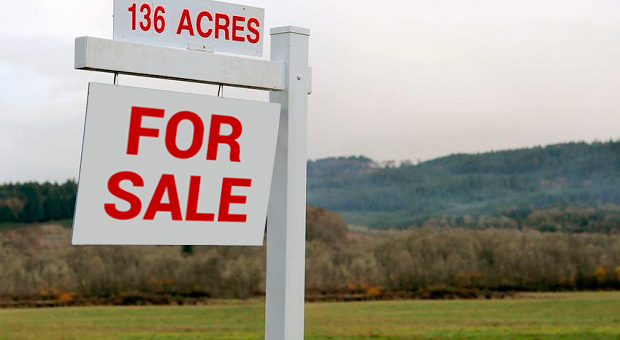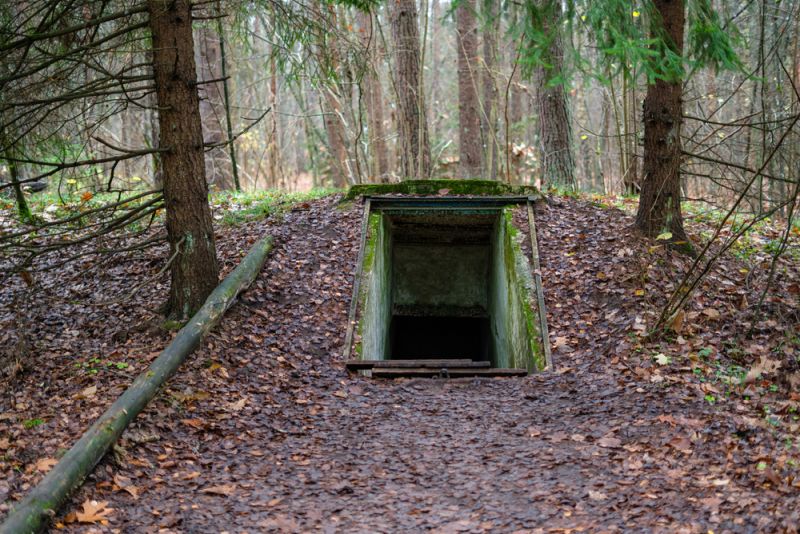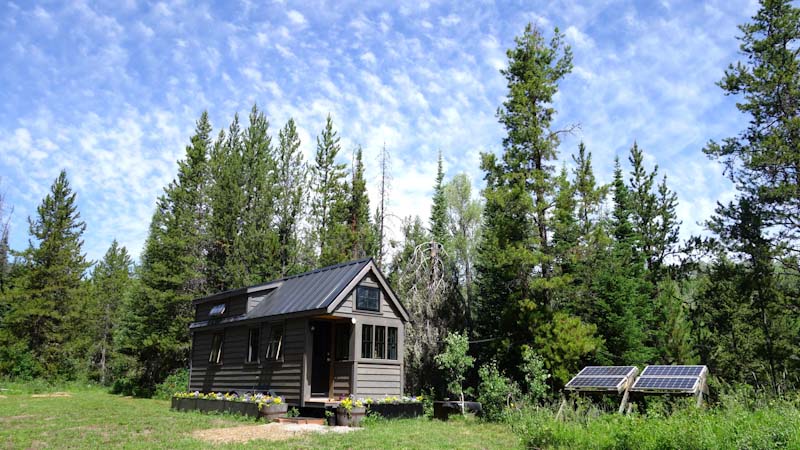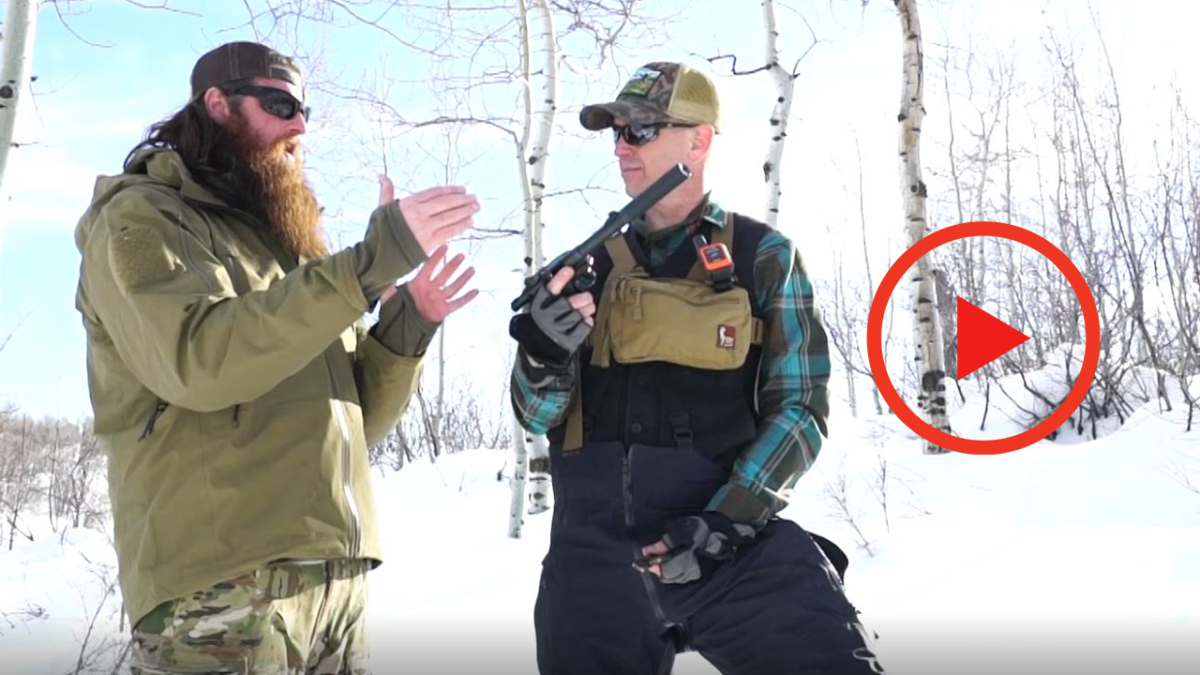So you’ve decided to relocate – that’s awesome! However, there are some things that you need to look for when you’re searching for that perfect bug out or relocation place. Some are related to buying property in general and some are specific to bug out or homesteading locations.
By the time we’re done, you’ll be a bit wiser when you head out to find that perfect property.
Realtors Are Creative
Selling a decent house in today’s market is tough. Selling a teensy, tiny dump is nearly impossible.
For instance, let’s say that a realtor tells you this: “I have this place that the former tenants destroyed. They knocked holes in the drywall, stole the ceiling fans and stained the carpet beyond repair. But I’m sure you’ll love it!” You’d run for the hills, right?
That’s why they convert that sentence into, “I have a house that has real promise but it needs some TLC” or they may advertise it as a “handyman special”. For seasoned renters and home buyers, this realtor-speak is easy to see through but if you’re buying your first home, you may be suckered in.
Here are just a few phrases that you need to beware of:
- “Cozy” or “larger than it looks” – the house or room is about the size of Cracker Jack box. If you’re looking for a small place, this may be OK, but ask about the square footage if you’re interested in a bigger place.
- “Easy access to everywhere”, “Convenient location” – extremely close to town, if not on a main street or thoroughfare. This place is likely going to have a ton of traffic and be pretty visible. Not exactly what you’re looking for in a bug-out place.
- “Low maintenance yard” – good luck growing a garden. It’s either been paved, graveled or has so little sunlight peeking through that nothing will grow in it.
- “Waterfront property” or “Damp basement in winter” – check all over for leaks and cracks in the foundation.
- “Charming” or “Vintage” – think old wiring and plumbing, along with termites. Have the house closely inspected to make sure that the foundation is rock solid and everything is up to code.
- “Great starter home” – it’s smaller, probably needs some repairs and is probably older.
- “Loads of potential” – you’re going to dump a ton of time and money into the place to get it up to its full potential.
- “In original condition” – the owner hasn’t so much as changed a hinge since the house was built 40 years ago. You’re going to be doing some upgrading and repairs.
- “Sought-after location” – this one could go a couple of ways. Either only the Rockefellers can afford to live there or it’s so far off the beaten path that you’ll need a horse to get to it. The latter, of course, would be fabulous but ask in advance.
- “Rustic” or “Authentic” – good luck finding a flushing toilet in the place.
- “Unique” – people have added on so many random rooms that it doesn’t conform to the rules of physics.
- “Finishing touches are needed” – the place has no light covers, there’s no trim and the drywall is still bare.
- “Galley kitchen” – the sink is on the opposite side of a 4’ wide aisle directly across from the refrigerator and there’s no way that two people are going to fit in there at once.
- “Mechanic’s dream” – the garage is the only thing worth looking at.
- “Quaint cottage” – a tiny wooden house built in the 60’s with tilting floors, old linoleum and faulty wiring.
- “Short sale” – this description is serious. The house is typically worth less than the outstanding mortgage and the bank is willing to take less money for it for whatever reason. If you enter a short sale situation, or even a foreclosure situation that may be listed as “required seller documentation” be sure that you have a competent, experienced professional on your side so the YOU don’t come up on the short end.
Also, know that if a room is listed as a bedroom, it’s supposed to have at least 1 window that looks outside. Otherwise, it’s an office, den or “spare room”.
Keep in mind that there really are honest real estate agents out there and that sometimes these descriptions may be exactly what they mean. Just don’t be naïve and believe that “cozy” always means “cozy”. Always remember that their goal is to sell you something because that’s how they make their living.
OK, now on to specific traits to look for in a bug-out location.
Location: Is the House or Building Visible from the Road?
If so, you’re going to be more of a target for thieves and vandals. Try to choose a house with a hidden driveway and buildings that can’t be seen from the road.
Also consider the population. If your house seems isolated but is only 4 miles from a major city, you may want to rethink the location. Trees are great to hide your property but if you’re that close, people WILL find you.
Does the House Back Up to a Hill or Mountain?
Having a hill at the back of the house can be a great defense because it’s one direction that you won’t have to guard so closely. As long as it’s not scalable, you’re in business. Make sure that it’s not in danger of a landslide.
If the house is on the plains, try to choose a location that’s far away from everybody. Visibility will be an issue and you don’t want to be a target to any more people than necessary.
What Are the Local Resources?
Is there wild game around? What about fresh water? Is the soil suitable for growing plants? Is the landscape rocky so that tilling a garden will be difficult if you have no electricity? Is there plenty of firewood to heat and cook with? Is there fodder for livestock?
Depending on what you’re prepping for, these are critical questions that you need to ask yourself.
Can You Get There?
If you’re not planning on living on this land right now, are you going to be able to get there without running out of gas, or maybe even on foot?
If you’re relocating now, this isn’t an issue but if you’re using it as a bug-out place, it won’t be any good to you if you can’t get to it.
What’s the Weather Like?
Does it snow so much that you’re not going to be able to make it to the barn to milk the cows? Is it too hot for cows to stay healthy or for water supplies to stay plentiful? Are you physically capable of dealing with the local weather?
If possible, visit the potential place during the time of year that would be worst for it, weather-wise. It’s great to go when it’s raining, too so that you can look for leaks.
How Much Work Needs Done?
If you’re handy and/or have some money, this really isn’t an issue but if you’re neither of those, you need to make sure that the house is secure and that you have the other buildings that you’ll need. A few examples are barns, cellars, animal shelters, hay storage buildings and a house in good condition.
Put some thought into what you’ll need before you relocate. By carefully considering what, exactly, you’re looking for and what you’ll need to get started, you’ll be more able to find the place that’s right for you. Don’t just buy a place because it’s cheap or because it’s isolated; those traits alone aren’t enough to make it the perfect relocation home.
I’m sure that I missed some things so if you have any ideas about what to be aware of when searching for land, please share them with us in the comments section below!
This article has been written by Theresa Crouse for Survivopedia.











Gill Palmer | June 1, 2015
|
LOL! My check is in the mail.
Pingback:My Survival Story: Lessons Learned From Living In My Car For A Year | Survival skills, survival guns, survival guide | June 3, 2015
|
Pingback:My Survival Story: Living In A Car For A Yeardisasterdefense.usdisasterdefense.us | disasterdefense.us | June 4, 2015
|
Pingback:5 Fatal Mistakes To Avoid When Bugging In | Survival skills, survival guns, survival guide | November 12, 2015
|
Pingback:5 Fatal Mistakes To Avoid When Bugging In | Prepper's Survival Homestead | November 12, 2015
|
Pingback:5 Fatal Mistakes To Avoid When Bugging Indisasterdefense.us | disasterdefense.us | November 12, 2015
|
Pingback:15 Survival Projects For Preppers Before The Winter Comes | Survivopedia | August 29, 2016
|
Ridley Fitzgerald | October 27, 2016
|
I appreciate the tips for buying land. I like how you pointed out that real estate agents can be pretty creative with their presentation. “Vintage” could definitely mean something else, like you said! I will have to remember that as I look for a property to buy.